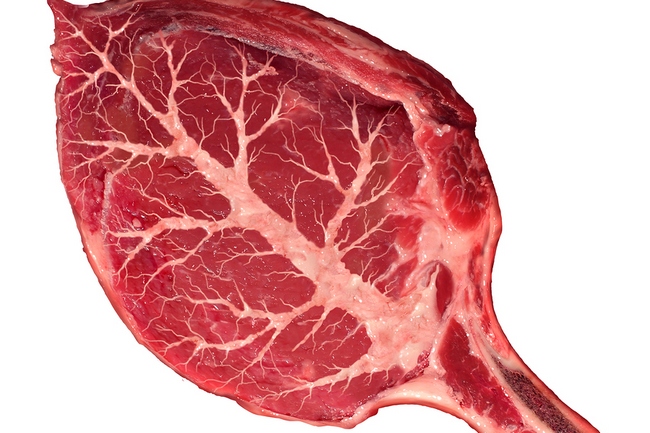- Make It Yourself Lavender Heart-Shaped Bath Bombs!
- 20 Things You Never Knew About “Down There”
- 12 Best Foods For Those Suffering From Arthritis Pain
- 12 Personal Hygiene Mistakes Almost Everyone Makes (Mom Never Told You About #4!)
- 15 Medicinal Plants And Herbs From The Cherokee People
- 12 Mind-Blowing Benefits Of Drinking Coconut Water During Pregnancy
- 12 Outstanding Winter Foods That Won’t Fatten You Up Like A Christmas Turkey
Switch to Grass Fed Meat: 5 Reasons Why You Should

Photo credit: bigstock
For some people, the choice to eat meat is a personal one. To each their own, as they say. For those of us who choose to eat meat and feel that it’s more natural, grass fed meats are the way to go. It’s much kinder and more natural for the animals; it’s easier on Mother Earth, those who deal with the animals, not to mention it’s better for your body.
For untold centuries, sheep, cows, chickens, even pigs, have been raised outside on pasture land, enjoying fresh air, sunlight, rain, and eat a natural diet of grass, leaves, and insects. Animals grew up healthy, naturally, and gave us healthy meats that were nutrient rich in proteins and healthy fats. Read more about healthiest foods you should have at your kitchen.
Quite a far cry from the factory meat farms of today. Pigs raised in crates so small they can’t stand or turn around. Chickens shoved into tiny cages set in warehouse like settings where they never see or feel sunlight, cows crowded together being fed harmful by products and growth hormones. The meats from animals that are raised in these types of conditions lack almost many of the nutrients you find in grass fed meats.
Pastured or grass fed meat comes from animals that live outdoors, enjoying the sun and the rain, eating what comes natural to them. Animals that eat a natural diet rarely require antibiotics. Chickens are protected from natural predators by living inside fenced in enclosures and retreating to barns at night, to roost the way they naturally do.
Grass fed animals have healthy fat profiles, not to mention the following health benefits:
- Higher amounts of conjugated linoleic acid
- Higher in beta-carotene
- Higher amounts of minerals, potassium, magnesium, and calcium
- Higher in omega-3 fatty acids
- Balanced ratio of omega-6 to omega-3
- Higher levels of vitamin E
- Higher in B vitamins
- Higher levels of vaccenic acid
Vaccenic acid is a trans-fat that naturally occurs in animals such as cows and sheep. Vaccenic acid protects against atherosclerosis, a common risk factor for the development of heart disease. Don’t confused vaccenic acid for the same type of synthetically made, dangerous trans- fats that are found in processed vegetable oils.
Studies show that grass fed cows contain as much as 7 times the amount of beta-carotene compared to factory raised cows. This is according to California State University studies. Beta-carotene is a type of pre-cursor for vitamin A, a fat soluble vitamin that is necessary for good vision, immune function, and bone growth.
Chickens that are considered to be “free range”, walking around outside in the sunlight, have higher levels of omega-3’s and vitamin A.
Continue to Page 2
































